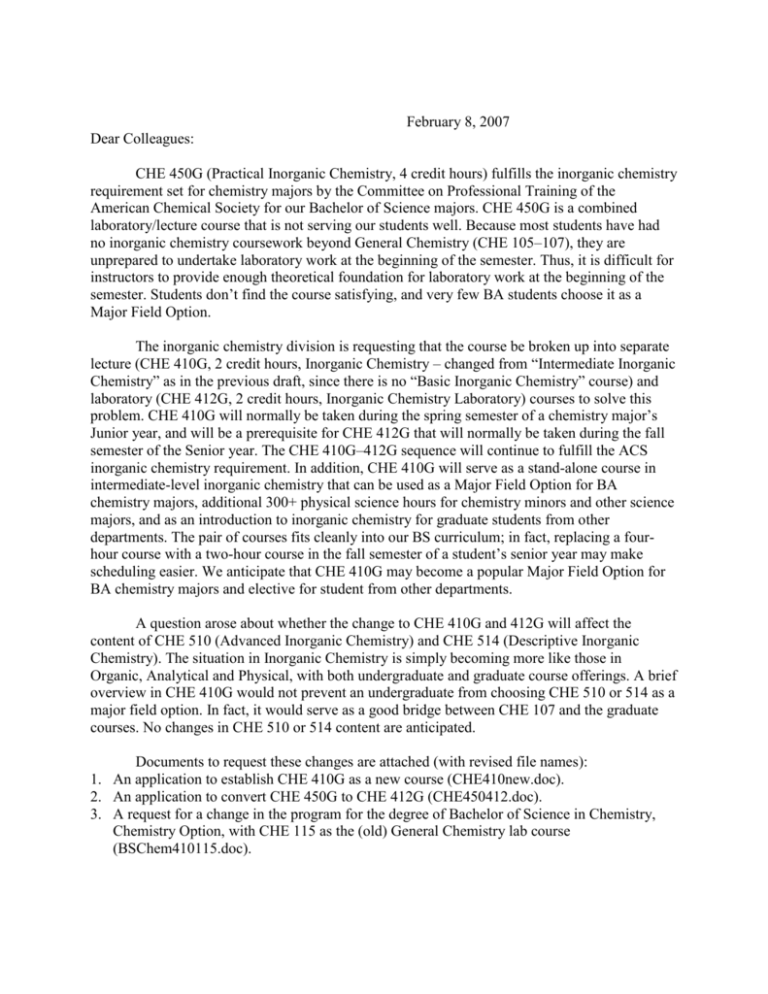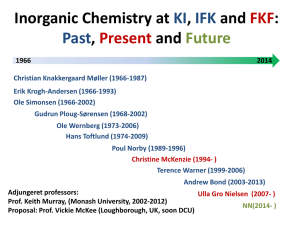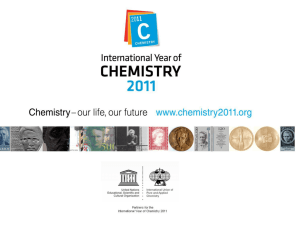Dear colleagues:
advertisement

February 8, 2007 Dear Colleagues: CHE 450G (Practical Inorganic Chemistry, 4 credit hours) fulfills the inorganic chemistry requirement set for chemistry majors by the Committee on Professional Training of the American Chemical Society for our Bachelor of Science majors. CHE 450G is a combined laboratory/lecture course that is not serving our students well. Because most students have had no inorganic chemistry coursework beyond General Chemistry (CHE 105–107), they are unprepared to undertake laboratory work at the beginning of the semester. Thus, it is difficult for instructors to provide enough theoretical foundation for laboratory work at the beginning of the semester. Students don’t find the course satisfying, and very few BA students choose it as a Major Field Option. The inorganic chemistry division is requesting that the course be broken up into separate lecture (CHE 410G, 2 credit hours, Inorganic Chemistry – changed from “Intermediate Inorganic Chemistry” as in the previous draft, since there is no “Basic Inorganic Chemistry” course) and laboratory (CHE 412G, 2 credit hours, Inorganic Chemistry Laboratory) courses to solve this problem. CHE 410G will normally be taken during the spring semester of a chemistry major’s Junior year, and will be a prerequisite for CHE 412G that will normally be taken during the fall semester of the Senior year. The CHE 410G–412G sequence will continue to fulfill the ACS inorganic chemistry requirement. In addition, CHE 410G will serve as a stand-alone course in intermediate-level inorganic chemistry that can be used as a Major Field Option for BA chemistry majors, additional 300+ physical science hours for chemistry minors and other science majors, and as an introduction to inorganic chemistry for graduate students from other departments. The pair of courses fits cleanly into our BS curriculum; in fact, replacing a fourhour course with a two-hour course in the fall semester of a student’s senior year may make scheduling easier. We anticipate that CHE 410G may become a popular Major Field Option for BA chemistry majors and elective for student from other departments. A question arose about whether the change to CHE 410G and 412G will affect the content of CHE 510 (Advanced Inorganic Chemistry) and CHE 514 (Descriptive Inorganic Chemistry). The situation in Inorganic Chemistry is simply becoming more like those in Organic, Analytical and Physical, with both undergraduate and graduate course offerings. A brief overview in CHE 410G would not prevent an undergraduate from choosing CHE 510 or 514 as a major field option. In fact, it would serve as a good bridge between CHE 107 and the graduate courses. No changes in CHE 510 or 514 content are anticipated. Documents to request these changes are attached (with revised file names): 1. An application to establish CHE 410G as a new course (CHE410new.doc). 2. An application to convert CHE 450G to CHE 412G (CHE450412.doc). 3. A request for a change in the program for the degree of Bachelor of Science in Chemistry, Chemistry Option, with CHE 115 as the (old) General Chemistry lab course (BSChem410115.doc). 4. A request for a change in the program for the degree of Bachelor of Science in Chemistry, Chemistry Option, with CHE 111-113 as the General Chemistry lab sequence (BSChem410111.doc). 5. A request for a change in the program for the degree of Bachelor of Science in Chemistry, Biochemistry Option, with CHE 111-113 as the General Chemistry lab sequence (BSChemBio410.doc). Please look over these documents in order to discuss them at the February 8, 2007, faculty meeting. If we start the change moving along this month, we may be able to start CHE 410G in Spring 2008. Please send any comments and concerns to me. Jack Selegue







